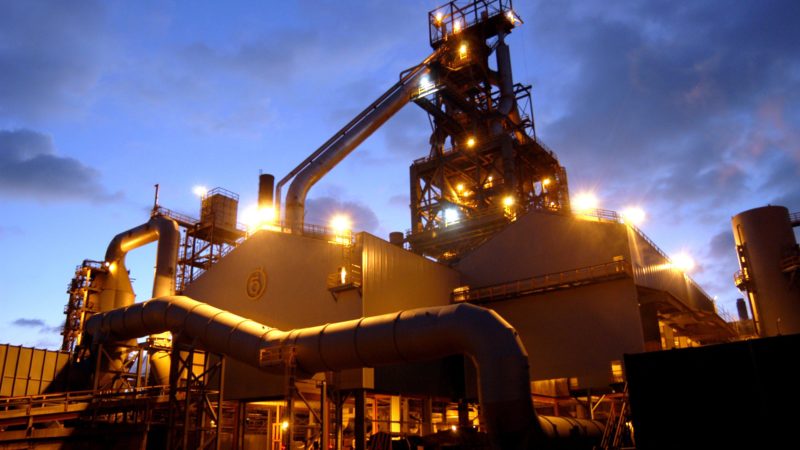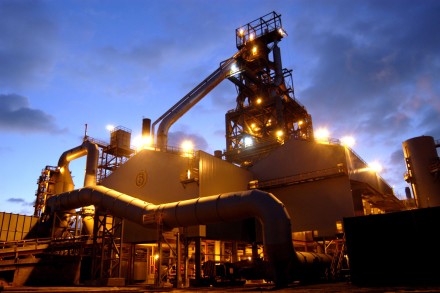

Over the past few months, a small group of Labour MPs have had to devote themselves almost entirely to a crisis affecting their constituencies.
There has been a well documented steel crisis for over 12 months now.
Whether it was the collapse of the Thai based SSI company which led to the loss of the Redcar works – a collapse which affected all the Labour MP’s on Teesside; the massive contractions at Port Talbot and Llanwern which has hit MP’s from Aberavon, Swansea, Neath and Newport area; job losses at Hartlepool’s tube works which meant our regional colleague Iain Wright being drawn into the fray or the cuts to employment at Scunthorpe which Nic Dakin has been resisting, the common thread has been the structural weakness of UK steel in a world awash with cheap steel and steel products, of which most is being dumped by Chinese based steelmakers.
Much more is still to come. This week saw job losses at Sheffield Forgemasters, and we are all imminently waiting to see what will be the shape and outcome of the protracted negotiations over the sale to equity merchants Grey Bull of Tata Steel’s Long Products Division, a sell off which will impact again on the constituencies that I and my local colleague Anna Turley represent, and, of course, the one remaining large integrated plant still functioning in England at Scunthorpe.
Yes, Labour, in the shape of the PLP, local Labour councils in the steel lands, the affiliated unions representing affected workers and rank and file party members have been backing the protests and swelling the local rallies and demonstrations. And that’s as it should be.
But I believe more could have been done. And more needs to be done still in the near future.
We have got to convince an uncaring Tory Government that steel matters. That steel matters for the future of our infrastructure programmes like HS2 and any new London Airport, matters in terms of meeting strategic defence requirements and matters in terms of providing a material base for UK engineering and manufacture.
We have got to convince a Chancellor besotted with his new friends in Beijing that meekly allowing China market entry stratus in Europe would be a dagger in the heart of European and British industry.
And we could have done this better if the voice of steelmakers and their families had been heard at the top level of our party.
But it isn’t. A tawdry fix amongst a small handful of trade union leaders was all it took to dump the steel union, Community – of which I am a proud member – and to replace them with the small Bakers Union. This little bit of chicanery might be legal within the context of the present rule book, but in terms of representation, it wasn’t.
And it was done not to demonstrate the rich tapestry and wide and varying cultural difference with the affiliated trade union movement. No, it was done to put the leaderships friends on the NEC at conference 2015-on the same day 2,200 SSI workers, overwhelmingly Community union members, were informed they hadn’t a job.
We need to urgently re-look at our NEC in terms of its representation of the wider Labour movement.
We must ensure proper representation for often overlooked and under represented private sector workers. And we must give greater regional block voices in our conference.
This has long been recognised.
Nye Bevan, who himself suffered ongoing crucifixion at the hands of a small cabal of trade union leaders of the 1950’s, saw this clearly . This led him to argue for the breaking up of the central monolithic bloc system and to replace it with NEC membership based on trade unions from the regions and sectors.
Time to look at this again perhaps?
And then there is the position of local Labour Councillors. Again, under present rules, just two Labour Councillors sit on the NEC. Yet, collectively, Labour Councillors, via their levy payments to the party and to the Association of Labour Councillors are the single biggest donors to Labour’s funds – bigger than the Unions and far bigger than the small but often noisy group of wealthy donors in industry and finance.
It was Labour Councillors like Brian Dennis, a steelworker at the SSI Concast Plant, and Rob Jones and Tony Towers at Port Talbot who articulated the struggle and the case for steel at local forums and at the Labour Party Conference. They too, deserve a place where they can again articulate the needs of steel communities within the heart of the party.
We are committed, it seems, to a review of party organisation and structure. Thoughts from the regions of our great nation, not only London, should be part of that review.
Tom Blenkinsop, Labour MP for Middlesbrough South and East Cleveland, Chair of Community Union’s Parliamentary Group, & Chair of the All Party Steel and related metal industries group




More from LabourList
SPONSORED: ‘Industrial hemp and the challenge of turning Labour’s priorities into practice’
‘A day is a long time in politics, so we need ‘action this day’’
Strong support for child social media ban among Labour members, poll reveals